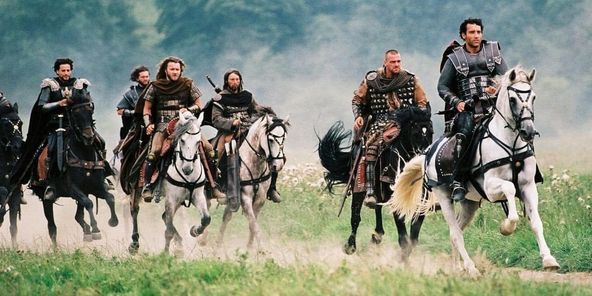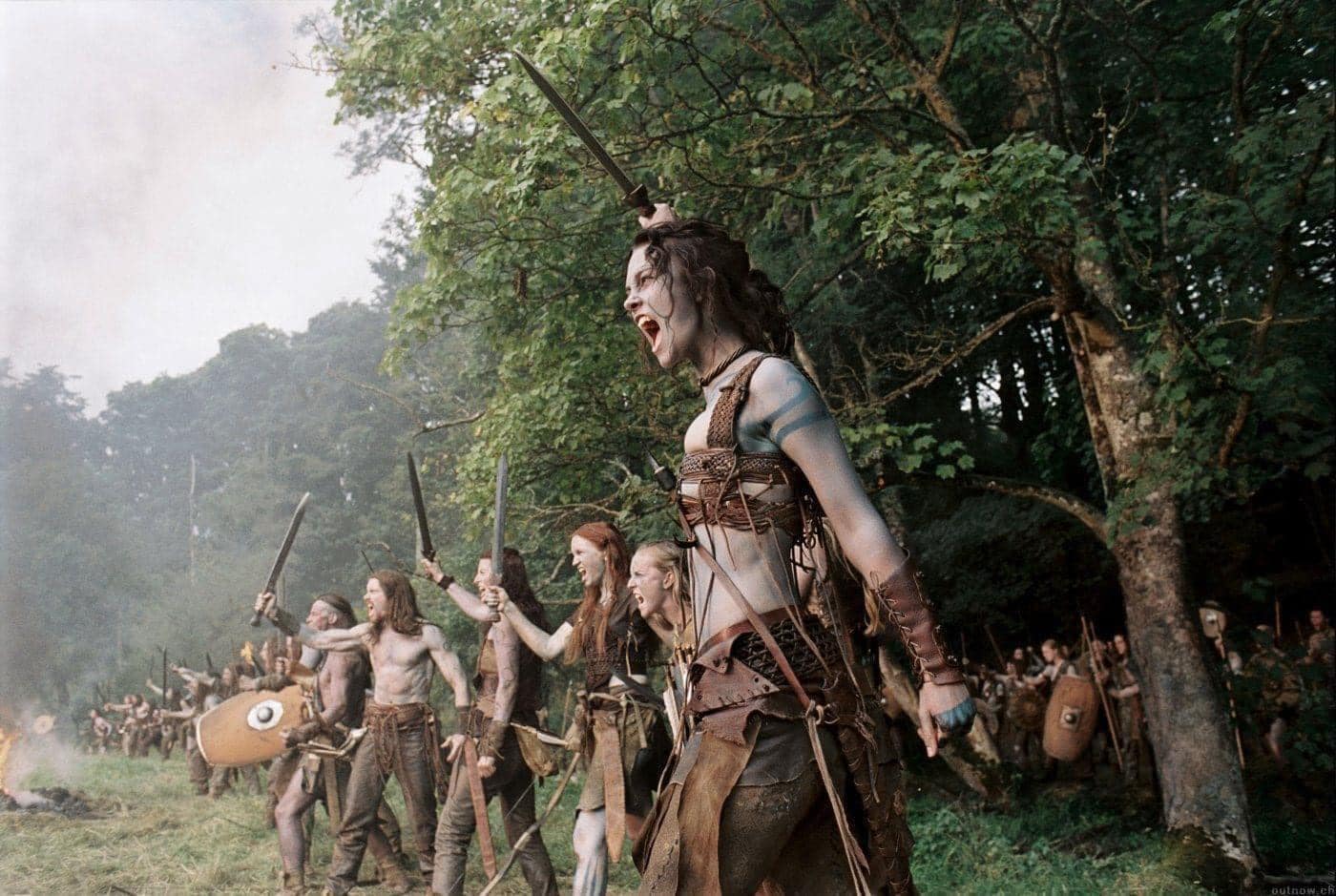“King Arthur” (2004)

Released in 2004, “King Arthur,” directed by Antoine Fuqua and starring Clive Owen, is a gripping reimagining of the Arthurian legends. Unlike traditional portrayals of King Arthur and his Knights of the Round Table, this film offers a more historical and gritty take on the beloved legend.
Plot Summary
Set in the waning days of the Roman Empire, the film recontextualizes the Arthurian myth within a historical framework. The story follows Arthur (Clive Owen), a Roman officer who leads a group of elite knights. As the Roman Empire’s grip on Britain begins to wane, Arthur and his knights are tasked with one final mission: to defend the Roman-occupied territory from an impending Saxon invasion. The film depicts Arthur’s struggle with his leadership responsibilities and personal convictions while navigating the treacherous landscape of political alliances and warfare.

Themes and Significance
- Historical Realism vs. Mythical Legend: “King Arthur” presents a more realistic and less fantastical portrayal of the legendary king. By grounding the story in historical events and showcasing the Roman and Saxon conflict, the film explores how myth and history can intertwine, offering a new perspective on a well-known legend.
- Leadership and Honor: Central to the film is the theme of leadership. Arthur’s role as a leader is portrayed with complexity—he is not just a heroic figure but a man burdened with the weight of his responsibilities. The film examines the qualities of a true leader, including honor, sacrifice, and the moral dilemmas faced in times of war.
- Cultural and Political Struggles: The film delves into the cultural clash between the Romans and the Saxons, reflecting broader themes of conflict between different civilizations. It portrays the struggle for power and the impact of political decisions on ordinary people, highlighting the human cost of war and conquest.
- Brotherhood and Loyalty: Arthur’s relationships with his knights are depicted with depth, emphasizing themes of loyalty and camaraderie. The film explores how these bonds are tested in the face of adversity, illustrating the importance of trust and unity in overcoming challenges.

Conclusion
“King Arthur” (2004) stands out as a thought-provoking reimagining of the Arthurian legend. By blending historical context with the classic tale of heroism, the film offers a nuanced exploration of leadership, honor, and the complexities of cultural conflict. Its gritty portrayal of Arthur and his knights provides a refreshing and insightful perspective on one of history’s most enduring legends.











